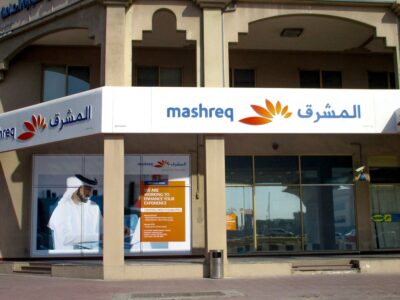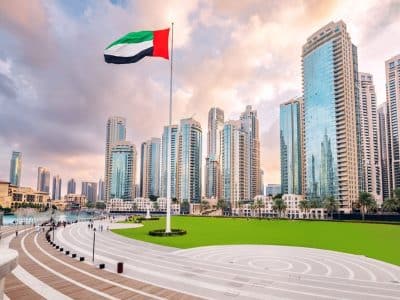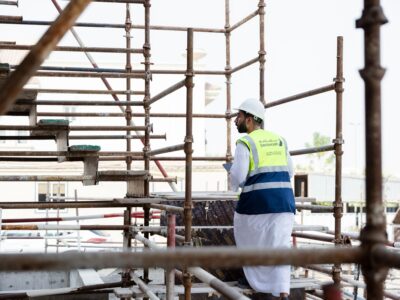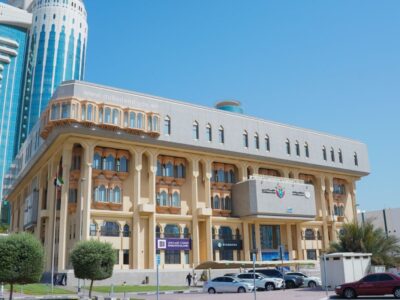As global buyout deals slow to a trickle and lending costs soar, the oil-fuelled economies of the Gulf are providing the liquidity needed to sustain a local infrastructure boom. In this special report, we examine the growth of private equity, the expansion of sovereign wealth funds and the emergence of the Gulf as the world’s lender of last resort.
Gulf economies could generate US1$ trillion budget surpluses within a decade, fuelling a boom in private equity deals and the expansion of the region’s largest family-run trading groups.
That prediction from the Abraaj Capital CEO Arif Naqvi explains why private equity is poised for unprecedented growth in the Middle East, as the flood of petrodollars from Riyadh to Doha replaces liquidity lost from global credit markets.
The six Gulf states supply 22% of the world’s oil, earning them about US$1.5bn a day at current prices.
The region needs infrastructure investment of about US$676bn according to Naqvi, which he says can only be described as “silly money”. As much as US$200bn of this is needed for power infrastructure while a further US$188bn is required for transport projects.
“It’s going to happen in a public-private partnership and when it happens, the knock-on effect for the private sector will be massive,” he told a gathering of private equity professionals in Dubai this week.
Such private partnerships are expected to fuel the expansion of the sector in the Gulf while the changing structure of the region’s traditional family businesses will also create demand for private equity from a second generation of Arab entrepreneurs.
The six Gulf states supply about 22% of the world’s oil, earning them about US$1.5bn a day at current prices, from pumping about 15 million barrels of crude. Saudi Arabia earned about US$206bn from oil sales last year.
The rising oil price has helped fund a building boom, with the region developing projects worth about US$1.5 trillion, according to a report from ING Wholesale Banking.
The surging oil price is also expected to see local economies grow at an average of 9% in 2008, or more than twice the global average.
The projected growth in the Gulf’s private equity sector comes as buyout activity in the rest of the world slows to a trickle, with the cost of bonds and loans used to fund buyouts doubling since June, according to Merrill Lynch.
The slowdown has been caused by a global credit crunch, described by veteran financier George Soros as the world’s worst financial crisis in 60 years.
While the opportunities created by those distressed markets have not gone unnoticed by the big private equity houses in the Gulf, the abundance of opportunities created by the expansion of local family trading groups is also being seen as a home for local private equity.
“The region’s family businesses are much more receptive to the idea of private equity now,” Sameer Al Ansari, CEO of Dubai International Capital, told Arabian Business.
Dubai International Capital, which manages about US$13bn, including stakes in HSBC and Sony Corporation, is seeking to tap the growth in the region’s largest family-run trading groups as they expand across borders.
“I guess finally they are more aware and recognise the issues that they face,” he said.
Abraaj’s Naqvi says that while the adoption of private equity among the region’s largest trading families has been slow in recent years, a change is starting to emerge as the second generation of entrepreneurs begins to emerge.
“I have been a little disappointed with the speed with which family businesses have embraced private equity.”
I don’t know if it’s going to be a saviour, I mean if we’re going to be able to lead the age of growth, but what I can see very clearly is there are at least 10 very, very good years ahead of us.
“We’ve been talking about it for seven or eight years and the backdrop to talking about it was that the first generations that have really built on these great businesses were getting older and in some cases had passed on.”
The growth of regional financial hubs such as Dubai and the expansion of private equity houses and investment banks has given the region’s big family-run firms increased exposure to new forms of lending and dealmaking.
“More and more business entrepreneurs who are still first generation are beginning to realise that through the intercession of private equity, the impact on their business and on their economic environment is going to be huge,” adds Naqvi.
The expansion of Gulf-based private equity firms is also starting to attract the attention of European and American houses seeking to compensate for the slowdown in deals.
Major buyout activity slowed dramatically last August when US subprime mortgage losses started to dampen investor appetite for highly-leveraged deals and the high-risk debt that was needed to finance them.
The slowdown has turned global attention towards the Gulf which is being increasingly seen as a saviour for the deal-starved private equity market.
“I don’t know if it’s going to be a saviour, I mean if we’re going to be able to lead the age of growth, but what I can see very clearly is at least 10 very, very good years ahead of us,” says Naqvi.
“The kind of surpluses this region will generate is going to be in trillions of dollars in the years to come.”
“And what that is going to mean is that the investment capacity of this region is going to grow dramatically.”
Whether or not the Gulf does emerge as a saviour of the global private equity sector, the region is figuring more largely as a potential source of capital for markets and companies in distress as a recent string of Gulf-based sovereign wealth fund cash injections to international companies has shown.
“Banks are re-allocating resources to the region,” says John Amato, CIO of Istithmar World Capital, the Dubai government-controlled investor that paid US$942m for Barneys New York, the luxury retailer.
“It’s a case of Dubai, Mumbai, Shanghai or Goodbye,” adds Amato. He points to the recent arrival of one of Morgan Stanley’s most senior bankers in Dubai, as evidence of the rising importance of the region to the world’s largest financial institutions.
DIC’s Ansari also believes that the region is attracting private equity specialists from overseas who will help the sector emerge in prominence.
“Private equity professionals from around the world now see the Middle East as a more attractive place to live and work,” says Ansari. Their arrival will cement the region’s claims to becoming a global hub for private equity dealmakers and their investors.
“This is our time. It is not a time for the faint-hearted,” he says.







